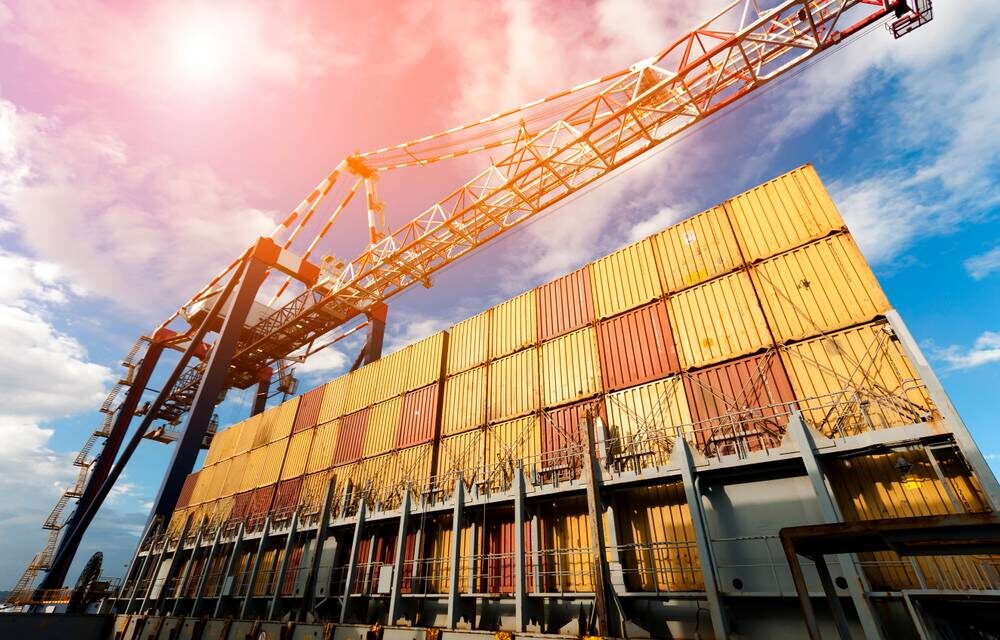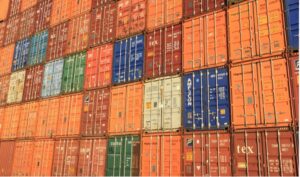Miami, a vibrant metropolis pulsating with international trade, thrives on the seamless movement of goods across continents. This intricate dance of imports and exports relies heavily on the expertise of freight forwarders – the unsung heroes of international shipping. But what exactly does a freight forwarder do, and how can they empower your business to navigate the complexities of global logistics?
The Role of a Freight Forwarder in International Shipping

Think of a freight forwarder as your one-stop shop for navigating the labyrinthine world of international shipping. They act as an intermediary between you, the exporter or importer, and the various players involved in getting your cargo from origin to destination. Their responsibilities encompass a wide range, including:
- Negotiating Rates and Booking Sea or Air Freight: Freight forwarders leverage their established relationships with shipping lines and airlines to secure competitive rates and optimal booking arrangements for your cargo.
- Coordinating Logistics: They handle the intricate details of transportation, from inland pickup and delivery to port handling and customs clearance.
- Documentation and Compliance: They ensure all necessary paperwork, including commercial invoices, packing lists, and certificates of origin, are accurate and meet customs regulations.
- Insurance and Risk Management: Freight forwarders can advise on appropriate cargo insurance and help mitigate potential risks during the shipping process.
- Customs Clearance: They guide you through the intricacies of customs regulations and facilitate the smooth clearance of your goods.
- Real-Time Tracking and Visibility: They provide access to real-time shipment tracking tools, keeping you informed on the whereabouts of your cargo.
By outsourcing these complex tasks to a freight forwarder in Miami, you free yourself to focus on core business activities.
Choosing a Top-Rated Freight Forwarder in Miami

Miami boasts a plethora of freight forwarders vying for your business. Here are key considerations when selecting the ideal partner for your shipping needs:
- Expertise: Choose a freight forwarder with a proven track record and extensive experience in handling the specific type of cargo you are shipping (e.g., perishables, hazardous materials).
- Network and Global Reach: Look for a company with established partnerships with international carriers and a strong network of agents at your destination port. This ensures seamless handling of your cargo throughout its journey.
- Communication and Transparency: Effective and timely communication is crucial. Choose a freight forwarder that maintains clear and transparent communication throughout the shipping process.
- Technology and Tracking: Opt for a company that utilizes advanced technology platforms for real-time shipment tracking and provides easy access to shipment documentation.
- Cost-Effectiveness: While competitive rates are important, don’t solely base your decision on price. The most cost-effective option often lies in a balance between service quality and pricing.
By considering these factors, you can confidently select a top-rated freight forwarder in Miami who becomes a valuable asset to your global supply chain.
Understanding the Shipping Process and Documentation

The international shipping process can seem daunting, but with a basic understanding of the steps involved, you can navigate it with greater confidence. Here’s a simplified breakdown:
- Booking: Once you have selected your freight forwarder, discuss your shipment details and obtain a quote. Upon confirmation, they will book space on a vessel or aircraft for your cargo.
- Preparation and Documentation: Ensure your goods are properly packaged and meet export regulations. Your freight forwarder will assist in preparing the necessary documentation, including commercial invoices, packing lists, certificates of origin, and potentially, export licenses (depending on the goods).
- Collection and Inland Transportation: The freight forwarder arranges for the pickup of your goods from your origin point and transports them to the designated port or airport.
- Customs Clearance: This crucial step involves presenting your shipment documentation to customs authorities for approval. Your freight forwarder will guide you through this process and ensure all compliance requirements are met.
- Ocean or Air Freight: Once cleared by customs, your cargo is loaded onto a ship or plane for international transport to the destination port or airport.
- Delivery and Customs Clearance at Destination: At the destination port, your freight forwarder’s partner will handle customs clearance and arrange for the final delivery of your goods to the designated recipient’s location.
By understanding these steps, you can work collaboratively with your chosen freight forwarder to ensure a smooth and efficient shipping experience.
Shipping Methods and Options for Goods from China to Miami

China remains a dominant force in global manufacturing, making it a common origin point for imports into Miami. Here’s a breakdown of the primary shipping methods for your China-to-Miami route:
Ocean Freight: This is the most cost-effective option for bulkier or heavier cargo shipments. There are two main options within ocean freight:
- Full Container Load (FCL): Ideal for large shipments that fill an entire shipping container. This offers greater security and control over your cargo.
- Less Than Container Load (LCL): Suitable for smaller shipments that don’t require a full container. Your cargo is consolidated with other shipments to fill a container, resulting in a more cost-effective option for smaller volumes.
Air Freight: While significantly faster than ocean freight, airfreight is also considerably more expensive. This method is ideal for time-sensitive cargo, such as perishables, electronics, or high-value goods.
The optimal shipping method depends on several factors, including:
- Cost: Ocean freight is generally the most cost-effective option, while airfreight is faster but more expensive.
- Delivery Time: If speed is critical, airfreight is the clear choice. However, if time is not a major constraint, ocean freight offers significant cost savings.
- Cargo Size and Weight: FCL is best for large shipments, while LCL is suitable for smaller volumes. Airfreight is generally well-suited for all cargo sizes.
- Cargo Type: Perishable goods or items with a high value-to-weight ratio may necessitate airfreight, while ocean freight is suitable for most other types of cargo.
By carefully considering these factors and consulting with your chosen freight forwarder in Miami, you can select the most appropriate and cost-effective shipping method for your goods originating from China.
Customs Clearance and Import Regulations

Customs clearance is a vital step in the international shipping process. It involves presenting your shipment documentation to customs authorities at the destination port for approval before your goods can be released. Here’s what you need to know:
- Import Duties and Taxes: Be prepared for potential import duties and taxes levied on your goods by U.S. Customs and Border Protection (CBP). Your freight forwarder can help you estimate these charges and ensure you have the necessary funds available.
- Documentation Accuracy: Ensure all your shipment documentation is accurate and complete to avoid delays or penalties during customs clearance. Your freight forwarder can guide you through this process and ensure compliance with all regulations.
- Restricted and Prohibited Goods: Certain items are restricted or even prohibited from import into the United States. Familiarize yourself with CBP regulations to avoid any issues with your shipment.
A reputable freight forwarder in Miami will possess extensive knowledge of customs regulations and can navigate the clearance process efficiently, minimizing delays and ensuring a smooth transition for your goods.
Tips for Cost-Effective Shipping and Reducing Transit Times
Even with the guidance of a freight forwarder, there are steps you can take to optimize your shipping costs and expedite the delivery of your goods:
- Plan Ahead: The earlier you book your shipment, the more options you have for securing competitive rates and potentially securing space on the most efficient vessel or aircraft.
- Consolidate Shipments: If you have multiple smaller shipments going to the same destination, consider consolidating them into a single shipment to reduce overall costs.
- Optimize Packaging: Proper packaging that minimizes dead space in your shipment can lead to cost savings on freight charges.
- Choose the Right Shipping Method: As discussed earlier, carefully consider the cost-benefit analysis between ocean and air freight based on your specific needs.
- Leverage Technology: Many freight forwarders offer online booking and tracking tools. Utilizing these can streamline the shipping process and potentially identify cost-saving opportunities.
By following these tips and collaborating with your chosen freight forwarder, you can achieve a balance between cost-effectiveness and efficient delivery times for your international shipments.
Tracking and Insurance for Your Shipments

Peace of mind is paramount when shipping valuable cargo across vast distances. Here’s how to ensure you can track your shipment and mitigate potential risks:
- Real-Time Tracking: Reputable freight forwarders utilize advanced tracking technology that allows you to monitor the location and status of your shipment in real-time. This provides invaluable peace of mind throughout the shipping journey.
- Cargo Insurance: Accidents or unforeseen circumstances can occur during shipping. Cargo insurance protects your financial investment in case of loss or damage to your goods. Your freight forwarder can advise on appropriate insurance coverage based on the value of your shipment.
By leveraging real-time tracking and obtaining adequate cargo insurance, you can minimize potential risks and ensure a smoother shipping experience.
Dealing with Potential Issues and Delays in Shipping
Despite careful planning, unforeseen delays or complications can arise during international shipping. Here’s how to navigate these situations effectively:
- Open Communication: Maintain open communication with your chosen freight forwarder. They are your primary point of contact and will keep you updated on any issues that may arise.
- Proactive Problem-Solving: Freight forwarders have the experience and resources to navigate challenges. Work collaboratively with them to find solutions that minimize disruption to your supply chain.
- Documentation Scrutiny: Double-check the accuracy and completeness of your shipment documentation. Errors or missing information can lead to delays during customs clearance.
- Contingency Plans: Develop contingency plans to address potential delays. This might involve having buffer stock on hand or identifying alternative shipping options.
By fostering open communication with your freight forwarder, adopting a proactive approach to problem-solving, and preparing for potential delays, you can minimize the impact of unforeseen circumstances on your international shipments.




